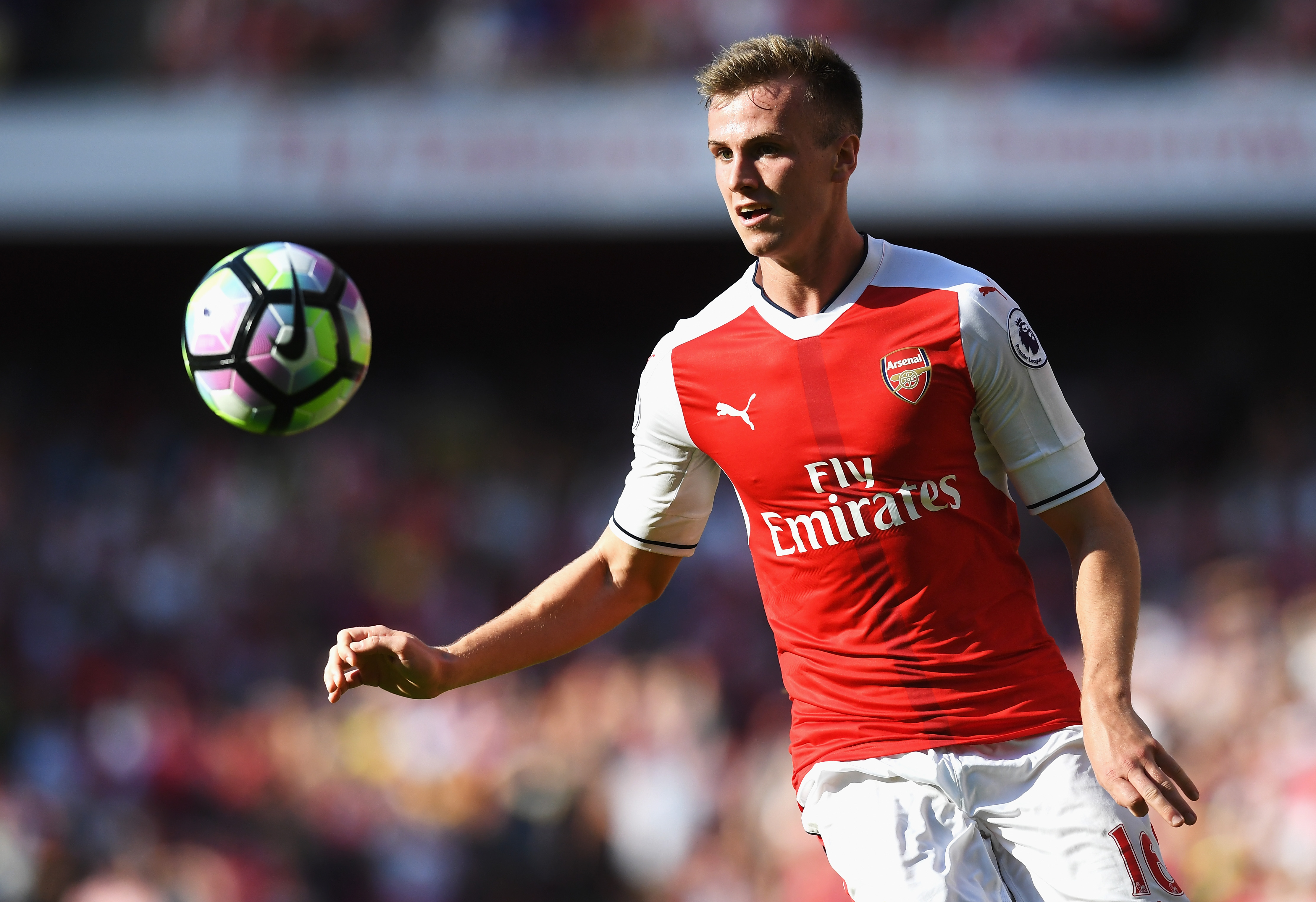Sprinting to stand still: Arsenal's summer transfer window (part 2)

© Getty Images
In part 1 of this review, we looked at the gaps Arsenal needed to plug in their
In this part, we look at wild card Rob Holding, talk about some low-profile departures and high-profile loans, and discuss an underlying theme running through Arsenal’s summer purchases.
Rob Holding
While the transfers of Xhaka, Perez, and
Holding couldn’t have had a more chastening first game: his pairing with Chambers was run ragged in a lethal 20-minute spell after half-time as Liverpool raced into a 4-1 lead. But it said something about Holding’s relative composure in that chaos (or perhaps Chambers’ more visibly calamitous moments) that Arsene Wenger chose Holding to partner Koscielny in the game against Leicester. Benefiting from an experienced partner, Holding immediately looked more assured and contributed to his team’s first clean sheet of the season. As the table below shows (taken from Adrian Clarke’s The Breakdown), Holding has improved in confidence with each passing game.

 © Adrian Clarke's The Breakdown
© Adrian Clarke's The BreakdownArsenal
What Arsenal let go
The loan
Reports suggest that the player initiated the discussion of a possible loan move after he was dropped from the England squad owing to lack of playing time. The club’s acquiescence of his demands is surprising but understandable in hindsight. Arsene Wenger rarely keeps an unhappy player in the squad and privileges player development over squad depth. He must also find it difficult to unquestionably rely upon Wilshere – given his horrible fitness record – and probably thinks that the change of scenery, guaranteed game time, and elevated responsibility Wilshere will enjoy at Bournemouth can kick-start his ailing Arsenal career.
Arsenal fans who have grown up watching Wilshere will want this loan move to put him back where he belongs: in the top pantheon of English midfielders playing today. The author is hopeful that Wilshere gallops back to the Arsenal fold – fitter and more confident than ever – as the sun dawns on the transfer window again.
Calum Chambers
Calum Chambers’ journey down the Arsenal pecking order is a tale largely of a player being played in a surfeit of positions, not nailing down any one position conclusively, and losing confidence as a result. Chambers was impressive in his opening games, putting in solid performances at
Once the
Koscielny and Mertesacker aren’t getting any younger, and Gabriel has been shaky in recent months as well. If Chambers has a solid season with Middlesbrough, he can be confident of knocking hard on that first-team door come next year.
Joel Campbell
Joel Campbell quickly turned from barely-mentioned pariah to fan-favorite last season, as his sweat, sprint, and soul won many hearts in the terraces. The Costa Rican had spent most of his Arsenal career on
The fact that Arsene Wenger froze him out during the latter half of the season has been a source of much fan consternation. Although Chamberlain has more potential and Walcott has more seniority, Campbell had a better season than both of them last year, and can feel rightly aggrieved at being ignored by the manager. After a good pre-season, Campbell
There were reports that he signed a new Arsenal deal before heading off to Sporting. However, if this loan deal has a purchase option, it wouldn’t be surprising to see Arsenal sanction Campbell’s sale if the player and the buying club so desired. A tale of unfinished business and jilted love that football produces en masse and sans mercy.
Serge Gnabry
One line of reasoning when Joel Campbell went out on loan was that Arsene Wenger was making space in the squad for talented German youngster Serge Gnabry. Having burst on to the scene in 2013-14, Gnabry’s rise had since been curtailed by a spate of injuries and an ill-thought loan spell under Tony Pulis at West Bromwich Albion. But the 21-year old had started the pre-season with Arsenal before going to Rio for the Olympics and lighting up the tournament with his pace, power, and goals. As Campbell departed, it was time for Serge to surge.
Cold water was quickly poured on that fan flame as
Like Campbell, Gnabry’s case seems to have been pushed through by the player, and Arsenal
The common theme of Arsenal’s signings
Arsenal ended up buying two
Granit Xhaka grew up playing football in the streets of Switzerland as a Kosovan immigrant and outsider, and
None of these players
Arsene Wenger made some comments about Leicester last season that
“There is a theory that says to go to the absolute utmost of your talent you need to suffer in life. When you look at the Leicester team, not one career of all these players was obvious, like starting on the red carpet at 18 years of age in the Champions League. These players had a dream that was not easy to obtain, but when they are in a position to reach it, they are ready for the fight.”
He has certainly signed four fighters.
